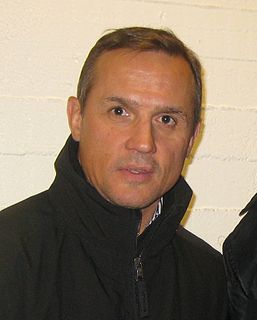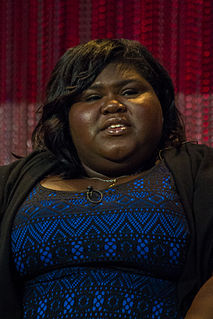A Quote by Joseph Brodsky
When you have those two languages - an analytic one like English and a synthetic, very sensual thing like Russian, you get almost a psychotic sense of humanity that permeates nearly everything. It can help you understand, and it can discourage you, because you see how little can be done.
Related Quotes
I work in Hebrew. Hebrew is deeply inspired by other languages. Not now, for the last three thousand years, Hebrew has been penetrated and fertilized by ancient Semitic languages - by Aramaic, by Greek, by Latin, by Arabic, by Yiddish, by Latino, by German, by Russian, by English, I could go on and on. It's very much like English. The English language took in many many fertilizations, many many genes, from other languages, from foreign languages - Latin, French, Nordic languages, German, Scandinavian languages. Every language has influences and is an influence.
We were doing the same thing. We will never have "a" Chicano English or Spanish because of regional differences. But I think that because of our bilingual history, we'll always be speaking a special kind of English and Spanish. What we do have to do is fight for the right to use those two languages in the way that it serves us. Nuevo-mexicanos have done it very well for hundreds of years, inventing words where they don't have them. I think the future of our language is where we claim our bilingualism for its utility.
Go is one of my favorite things that I ever did. Not that I critique myself, but sometimes I'll be passing by the television, and I'll say, "Meh, maybe I would have done that a little different." I can't help [but] do that. But Go was one of those things - I really loved working with Doug Liman. Detective Burke in Go is one of those roles that's about everything I like to do. I love parts like that. And Go seems to be the thing that rolled it all into one.
People see everything through a filter of them, of their own selves. And it's like, you can't be depressed because somehow that has something to do with me. And it's like - no, it doesn't. This is my brain. This is my body. These are my emotions. It's got nothing to do with you. You don't want me to get help for whatever reason you don't want me to get help. But I'm out here, and I need to get help.
American women mean a great deal to me. They're such lost souls, particularly the women of my generation. And women need so much help. They never have anyone to turn to. I help them understand how they can look better, how to do this, do that, get a job. And they're very trusting. Like little lost kids.
There is also evidence from epidemiological studies that psychotic-like experiences are much more common than has hitherto been thought (with about 10% of the population affected) and that these experiences exist on continua with healthy or 'normal' functioning: instead of the world falling into two groups (the psychotic and the non-psychotic) people vary in their disposition to psychosis and only a minority of people who have these experiences require or seek help.
It's two seasons since I raced in Sepang and I'm looking forward to it now. It's a track where you have a little bit of everything - it's hard to ride, it's hot, there are fast and slow corners, hard braking, long straights and everybody has references from the tests.
Nevertheless, we need to wait to see on Friday what the temperature and track conditions are like to understand how the tyres will work, because it's normally very slippery. I'm really enjoying racing at the moment and I want to continue like this, pushing the maximum from our side without thinking about the others.
If you get the characters right you've done sometimes nearly half the work. I sometimes find I get the characters right then the characters will often help me write the book - not what they look like that's not very important - what people look like is not about their character. You have to describe the shape they leave in the world, how they react to things, what effect they have on people and you do that by telling their story.
Then we have the silence of the eyes which will always help us to see God. Our eyes are like two windows through which Christ or the world comes to our hearts. Often we need great courage to keep them closed. How often we say, I wish I had not seen this thing, and yet we take so little trouble to overcome the desire to see everything.






































